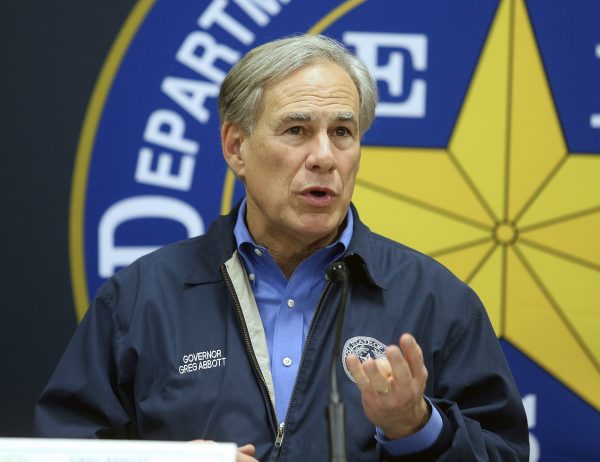In a historic move, Texas Governor Greg Abbott approved and ratified the first legislative effort within the United States aimed at curbing the Chinese Communist Party’s (CCP) heinous organ harvesting practices. The bipartisan legislation was first given the go-ahead in May after unanimously passing through both legislative bodies in the state — and was officially signed into law by Abbott on June 18.
The bill — formally known as SB1040 — is designed to prohibit the state from providing financial support to individuals or entities that partake in ethically dubious organ procurement procedures. Beginning Sept. 1, the law will also disallow any form of insurance coverage for residents who undergo transplants linked to countries with coercive organ harvesting practices.

MORE ON ORGAN HARVESTING IN CHINA:
- House of Representatives Passes ‘Stop Forced Organ Harvesting Act’
- Child and Bride Trafficking in China Linked to Organ Harvesting: Activist Report
- Xi Cracks the Whip on Social Lives of ‘Leading Cadres’ in the Military
- Agents of Communist China Arrested for IRS Bribery Scheme Targeting Falun Gong in the US
Groundbreaking
This legislative action comes in response to mounting evidence and reports that suggest the CCP’s involvement in forced organ harvesting. Notably, victims of this practice are believed to be mainly religious and ethnic minorities — including Falun Gong practitioners, Muslim Uyghurs, Tibetans, and other prisoners of conscience.
Falun Dafa (法輪大法), also known as Falun Gong, is a spiritual discipline harmonizing meditation exercises with a profound moral philosophy rooted in the principles of truthfulness, compassion, and forbearance (真善忍). During the 1990s, the practice gained immense popularity throughout China and across the globe — attracting millions of individuals, including influential government officials — who embraced its teachings and took up the practice.

In July 1999, the communist authorities launched a harrowing and merciless persecution against the practice — targeting an estimated 100 million of its adherents. This brutal assault aimed to quell the practice and suppress its principles within the country.
Success
You are now signed up for our newsletter
Success
Check your email to complete sign up
Since then, thousands of Falun Gong adherents have perished at the hands of Chinese police — with the real number of deaths speculated to be in the hundreds of thousands, or even millions. According to Minghui, a U.S.-based website that documents the persecution of Falun Gong, more than 4,000 practitioners have been persecuted to death, with the number continuing to rise. Many Falun Gong followers have also been routinely subject to harassment, travel bans, as well as arbitrary arrests and imprisonment.

A step in the right direction
The approval of SB1040 has seen widespread support from human rights activists, lawmakers, and advocates around the world. Calling it a substantial move to challenge China’s human rights track record, the hope is that other jurisdictions will follow suit.
Rep. Tom Oliverson (R-TX), who sponsored the bill, highlighted the gravity of this legislation by stating that it’s crucial to keep the Lone Star State clean from any form of participation in these “unacceptable practices.”
“With this law, we send a strong message to Beijing that all human life is precious and worthy of protection,” Oliverson told The Epoch Times, adding that he was “absolutely, unbelievably horrified,” upon learning how some of the victims were still conscious at the time their organs were harvested.

READ MORE: New Report Shows Chinese Doctors Used Organ Harvesting as a Method of Execution
Looking ahead
While many countries — including Australia, France, and Canada — have previously voiced concerns regarding these forced organ harvesting practices, the signing of SB1040 into law by Texas marks the first official U.S. legislation to address the issue and cut off demand for the practice at the source.
“If all 50 states have this prohibition, then essentially no American dollars will be going to Chinese hospitals that are participating in organ trafficking, so they won’t be able to pay for it.” said Oliverson.
The state’s move is widely seen as a significant stride in combating human rights abuses — raising hopes for more proactive measures in the near future, and urging the U.S. Congress and the president to take a firmer stance on the matter.
“I’d like to see this be something that passes in all 50 states. That would be my ultimate goal,” said Oliverson, adding, “All Americans [should] stand united against this detestable practice.”













